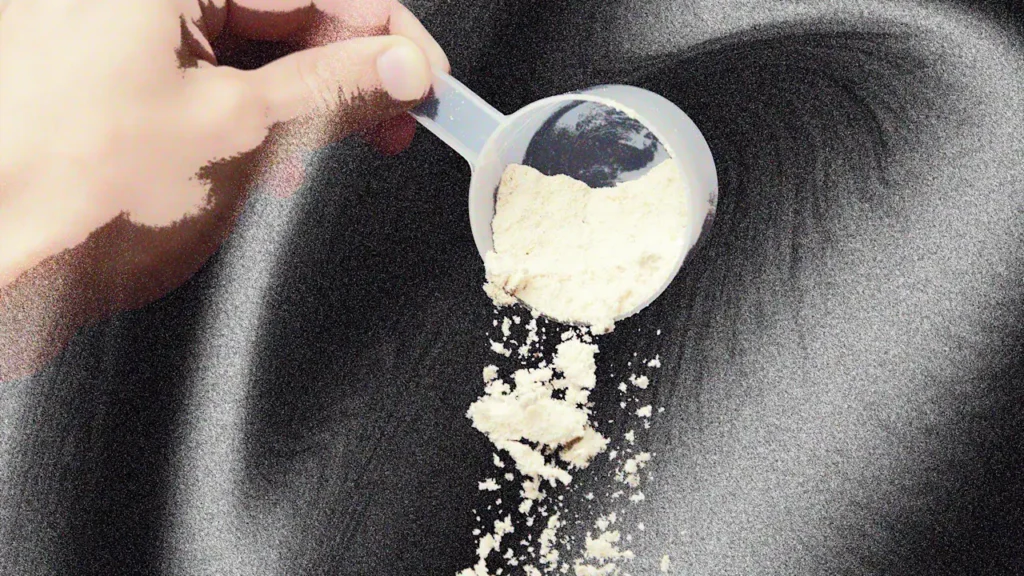
Protein powders are notoriously hit-or-miss when it comes to taste. But according to a new study from Consumer Reports (CR), gym bros and casual proteinmaxxers should be less concerned with how their protein powders taste, and more concerned about whether they might contain lead.
The study, published on October 14, tested 23 of the most popular protein powders and ready-to-drink shakes for heavy metal contamination.
CR purchased multiple samples of each product, including two to four distinct lots, over a three-month period beginning in November of 2024. The samples were then tested for protein, arsenic, cadmium, lead, and other elements.
The results were striking: More than two-thirds of the products analyzed contained more lead in a single serving than the amount that CR’s food safety experts say is safe to consume in a day. CR’s report noted that there’s “no reason to panic” if readers have been consuming these products, as they’re unlikely to cause immediate harm.
However, protein companies are pushing back against the results, arguing that the report is “alarmist.” Here’s what to know:
What did Consumer Reports find?
CR’s report is structured around a daily threshold of allowable lead consumption, which its researchers set at 0.5 micrograms. This figure is based on the California Prop 65 maximum, which, the publication notes, has a “wide safety margin built in.”
In comparison, while the Food and Drug Administration (FDA) does not have any official guidelines on dietary lead limits, it has set an estimated benchmark for safe daily consumption, which is 2.2 micrograms for children and 8.8 micrograms for women of childbearing age. (An FDA spokesperson told CR that the 8.8 figure can likely be applied to all adults).
To be clear, no amount of lead is technically okay to consume, with even low levels potentially causing serious health problems.
According to CR’s report, the most concerning products were all plant-based protein powders, which, on average, contained lead levels that were nine times the amount found in those made with dairy proteins and twice as great as beef-based ones.
Topping out CR’s list was Naked Nutrition’s Vegan Mass Gainer. For a serving size of 315 grams, CR found that the powder continued 1,572% of its daily lead consumption threshold, or about 7.7 micrograms per serving.
Following that product was Huel’s Black Edition powder, which contained 6.3 micrograms of lead in a 90 gram serving, and Garden of Life’s Sport Organic Plant-Based Protein, which contained 2.76 micrograms in a 45 gram serving.
How have protein powder companies responded?
In a statement to Fast Company, Naked Nutrition said it was important to note that Naked Vegan Mass Gainer was the only vegan weight gainer in the study, meaning it had a much larger serving size compared to the other powders tested.
When viewed on a per-gram basis, the company added, results are consistent with other plant-based proteins.
“Elements such as lead are naturally occurring in soil,” a spokesperson said. “Because plants naturally absorb minerals and elements from soil, trace levels of heavy metals can be found in virtually all plant-derived foods and proteins, even in certified organic products, regardless of brand or country of origin. While Consumer Reports did not share its complete lab data, we reviewed the available information and verified results through independent third-party testing, which confirmed that no heavy metals exceeded FDA reference intake levels for adults, including for sensitive groups such as women of childbearing age.”
A spokesperson for Huel, which published its own article in response to CR’s study, told Fast Company that it is “extremely frustrated” by the report and views it as “alarmist.”
The brand added that California’s 0.5 microgram threshold is “ultra conservative” because it divides the observable effect limit by 1,000 to allow a margin for error. For comparison, the EU benchmark is 270 micrograms per serving.
“It is important to understand that the Consumer Reports approach reflects a uniquely cautious regulation rather than an internationally accepted measure of consumer safety,” the spokesperson said. “Trace minerals such as lead occur naturally in crops because plants absorb them from the soil.”
For context, Huel added, a meal of sausages, potatoes, cabbage, and carrots can contain around 5 micrograms of lead, and most adults consume between 20 and 80 micrograms per day from normal foods. “Huel is no different from everyday meals in this respect.”
Huel’s spokesperson added that it has conducted 17 independent tests on Huel Black Edition, with results consistently showing lead levels between 1.5 and 2.2 micrograms per 90 gram serving.
Garden of Life did not immediately respond to Fast Company’s request for comment, but a spokesperson for the company told CR that its products are safe for daily use despite CR’s recommended limits.




